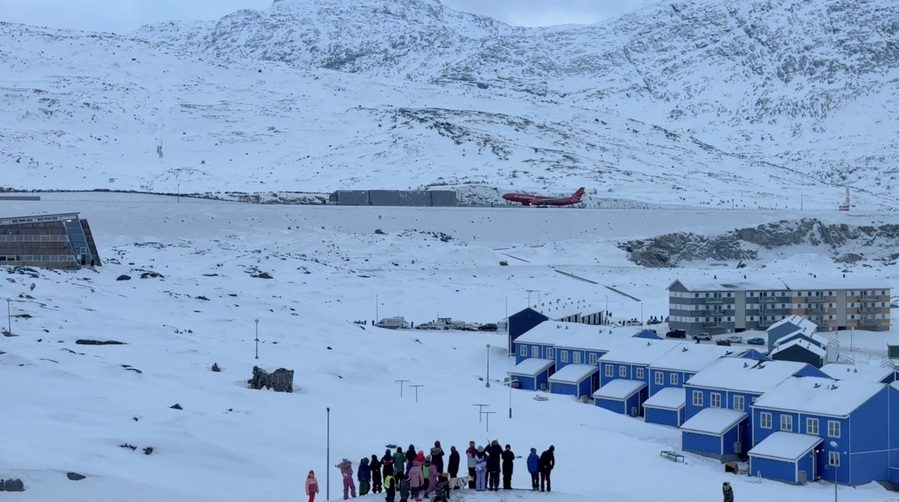Greenland’s leader, Múte Egede, has signaled a willingness to engage in discussions with U.S. President-elect Donald Trump about the Arctic territory’s future. Speaking Friday at a press conference in Denmark alongside Danish Prime Minister Mette Frederiksen, Egede made it clear that while dialogue is welcome, Greenland’s aspirations for independence remain firm.
“We are ready to talk,” Egede stated. “Cooperation is about dialogue, about working towards solutions. But Greenland is for the Greenlandic people. We do not want to be Danish, we do not want to be American. We want to be Greenlandic.”
Trump’s repeated interest in acquiring Greenland has reignited debates over the island’s strategic importance. The U.S. president-elect has described the territory as vital for national security, citing its vast reserves of rare earth minerals and its position in the Arctic, where Russia and China are expanding their presence.
A former Danish colony, Greenland gained home rule in 1979 and expanded its autonomy in 2009 following a referendum in which 75% of voters supported self-governance. While Denmark retains control over defense and foreign policy, Greenland’s leaders have long sought full independence. Achieving this would require another referendum, with approval from both Greenland’s electorate and the Danish parliament.

Egede’s government has emphasized the island’s desire to chart its own course. However, economic realities complicate the push for sovereignty. Greenland relies heavily on Denmark, which provides annual subsidies covering half of the public budget—amounting to nearly $1 billion, or $17,500 per resident.
Fishing accounts for over 95% of Greenland’s exports, and efforts to diversify the economy have faced significant hurdles. Environmental concerns and opposition from Indigenous communities have stalled mining projects, despite the island’s abundance of critical minerals, including graphite, lithium, and rare earth elements used in renewable energy technologies.
The United States maintains a military presence at Greenland’s Pituffik Space Base, established under a 1951 agreement with Denmark. The base plays a crucial role in monitoring Arctic waters, a key gateway for Russian naval and submarine activity. Trump’s administration has proposed expanding this presence, citing the island’s importance for missile defense and resource security.
Representative Mike Waltz, a key member of Trump’s incoming national security team, underscored the broader implications. “This is about the Arctic,” Waltz told Fox News. “It’s about critical minerals, oil, gas, and our national security.”
Trump’s eldest son, Donald Trump Jr., recently visited Greenland, ostensibly as a tourist. Accompanied by conservative media figure Charlie Kirk, the visit sparked controversy. Greenlandic lawmaker Pipaluk Lynge accused the delegation of staging the trip to project local support for U.S. interests. Trump Jr.’s spokesperson dismissed the claims as “ridiculous.”
Denmark has rejected Trump’s overtures to purchase Greenland, describing the proposal as “absurd.” Prime Minister Frederiksen reaffirmed her government’s commitment to respecting Greenland’s autonomy. “It is their country,” she said. “Only Greenland can determine its future.”
If Greenland achieves independence, it may explore alternatives to outright U.S. annexation. Experts suggest a “free association” model, similar to arrangements between the United States and Pacific island nations like Palau and Micronesia. This would allow Greenland to maintain self-governance while receiving financial and military support from Washington.
But, as Egede emphasized, “We want to be the masters of our own house. This is something everyone should respect.”












